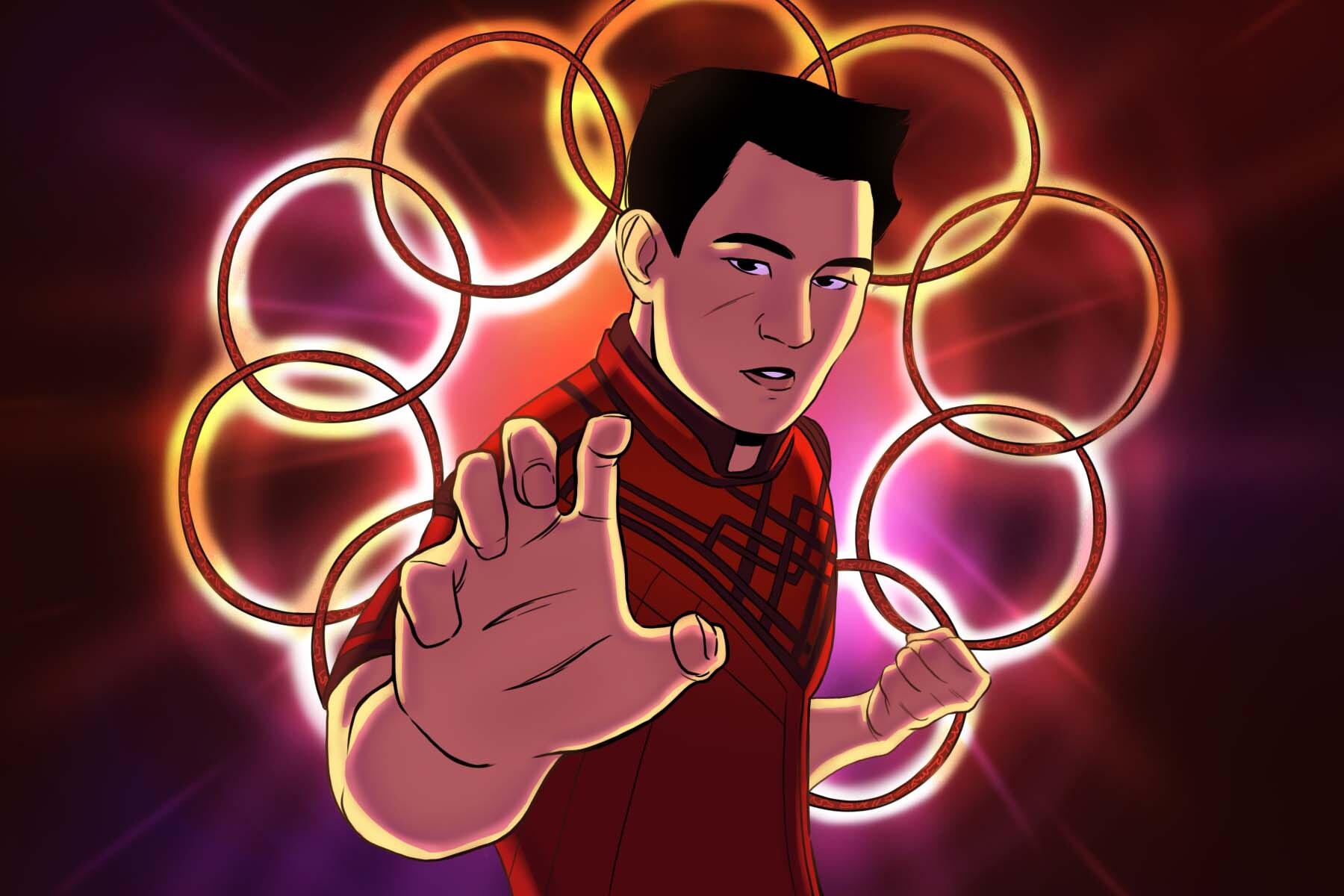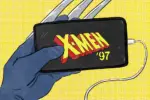“Shang-Chi and the Legend of the Ten Rings” seemingly had a lot to prove, both as the first Marvel film with a predominantly Asian cast and as the 25th film in the ever-present Marvel Cinematic Universe. The previous franchise installment, “Black Widow,” released jointly on Disney+ and in theaters to mixed reviews and prompted further discussion about “superhero fatigue.” Another mid-to-high-tier Marvel release, with a likable cast of characters and a genuinely sympathetic and complex villain — a rarity for the franchise — “Shang-Chi” easily silences its naysayers. However, Marvel’s formulaic nature is on full display, and the Chinese-inspired mythology in “Shang-Chi” cannot save it from becoming just another point on a timeline.
Shaun (Simu Liu) is your typical 20-something. He and his friend from high school, Katy (Awkwafina), work as valets by day and get drunk and sing karaoke by night. But Shaun has a secret past: He’s Shang-Chi, the son of an ancient warrior and crime lord dubbed “The Mandarin” (Tony Leung Chiu-Wai). His father trained him from a young age to be an assassin to avenge the death of his mother at the hands of a rival crime syndicate. The Mandarin wields 10 ring-like wristbands that he wears on his arms, which endow him with immortality and incredible strength. When Shaun and Katy are attacked by agents of his father, Shang-Chi must face his past and his father. He must unravel The Mandarin’s latest plot, which centers on his profound heartbreak over the loss of his wife and Shang-Chi’s mother, the only person he has truly loved in his thousand-year lifespan.
Like the comics it’s based on, “Shang-Chi” is a globe-trotting martial arts adventure. From the streets of San Francisco to seedy districts in Macau lit by neon lights, the locales and associated visuals are striking, evoking the criminal underworlds often seen in classic martial arts films. Up until the film’s third act, “Shang-Chi” is fairly grounded in reality, magic wrist-rings notwithstanding, and it helps that our main characters — while incredibly competent in martial arts — are very human. The stakes feel high though not so overblown as to be unbelievable. Shaun and Katy have a fun dynamic as two young adults who haven’t changed much since their teen years. It’s refreshing to see a pair of characters not portrayed as romantically involved, a common cliché of Marvel films.
Shaun’s past is far darker than that of many Marvel characters, and it’s a pleasant surprise that the film chose to commit to this darkness without toning it down at all. The Mandarin is a fascinating antagonist, whose status as a powerful man nearly driven mad by loss is unique in the Marvel universe for its emotional resonance. Even during the final CGI-ridden confrontation, his personality shines through, and despite all of the awful things he does he remains largely sympathetic because of his motivation.
However, not all of the film’s characters are winners. One who is particularly underutilized is Shang-Chi’s sister Xu Xialing (Meng’er Zhang), whose backstory is perhaps more intense than her brother’s and clearly has shaped her personality. Yet even as she laments being constantly in her brother’s and father’s shadows, the film leaves her enshrouded by them by mostly forgetting about her for much of its second half.
“Shang-Chi” comes out swinging with well-shot and well-choreographed martial arts fights, a first for the MCU — which typically relies on shaky-cam and CGI for its battles. The film’s early fight scenes are energized with realistic-looking hand-to-hand combat. Coupled with its strong performances and interesting characters, “Shang-Chi” initially seems like a high-tier Marvel release. But eventually, the pleasingly simple martial arts fights and compelling character motivations give way to the standard Marvel CGI spectacle.
The main cast leaves its picturesque Chinese locales in favor of a computer-rendered alternate dimension filled with fantastical creatures. The too-long CGI-driven battle in the last act lacks the simplicity and energy of the earlier hand-to-hand choreographed fights, and it’s so much less engrossing because of this. Coupled with plot developments that make Shang-Chi less vulnerable to physical damage, the stakes seem much lower than they should be, even though the film is obviously trying to raise them by introducing a new, supposedly much more threatening antagonist.
One thing that “Shang-Chi” had to get right with its execution was its status as the first Marvel film to feature an Asian-led cast. For the most part, the film handles representation very well, with obvious nods to Bruce Lee’s filmography and classic Hong Kong action cinema. But unlike “Black Panther,” the 2018 film similarly lauded and publicized for its representation, there is no underlying social commentary or message in the film.
This makes much of the publicity seem a bit hollow, since it’s not really that much of an accomplishment. There have been Asian-led Western-produced superhero films before, and hundreds of such films have been made outside the United States — and not just in Asia. It’s also curious that Marvel decided to focus on Chinese culture for the film’s aesthetic so specifically. And it’s amusing that they were obviously trying to boost ticket sales in China, yet the film won’t be released there because the Communist Party of China deemed it problematic for what it perceived as “stereotypes of Chinese culture.”
Once more the question of “superhero fatigue” is pushed back on to another film, and the world spins on. The success of “Shang-Chi” could be seen as “success against all odds” because of the uncertainty of its release during the pandemic, but was there really any doubt it would do well? Box office reports suggest it did well even by non-pandemic standards, making solid opening weekend numbers and far surpassing “Black Widow,” although this could have been because it didn’t have a concurrent Disney+ release. “Shang-Chi” remains theater-exclusive until October 14. “Shang-Chi” may not be a perfect film, but it is a solid installment in the MCU, which has become an institution that seems too big to fail.

















